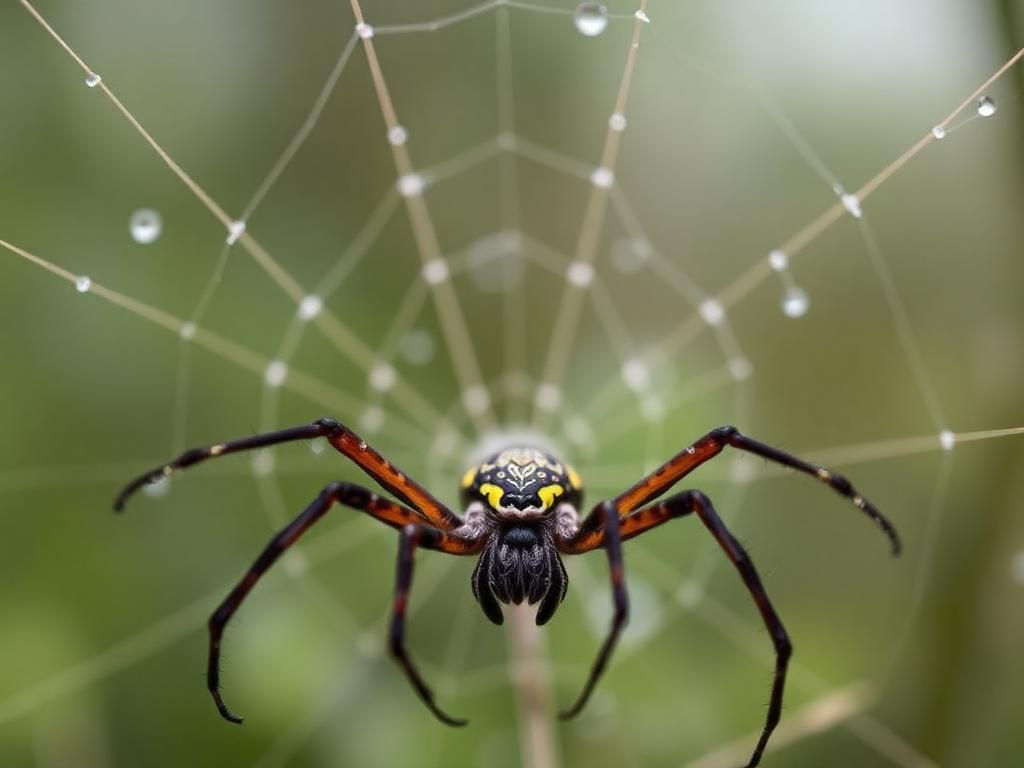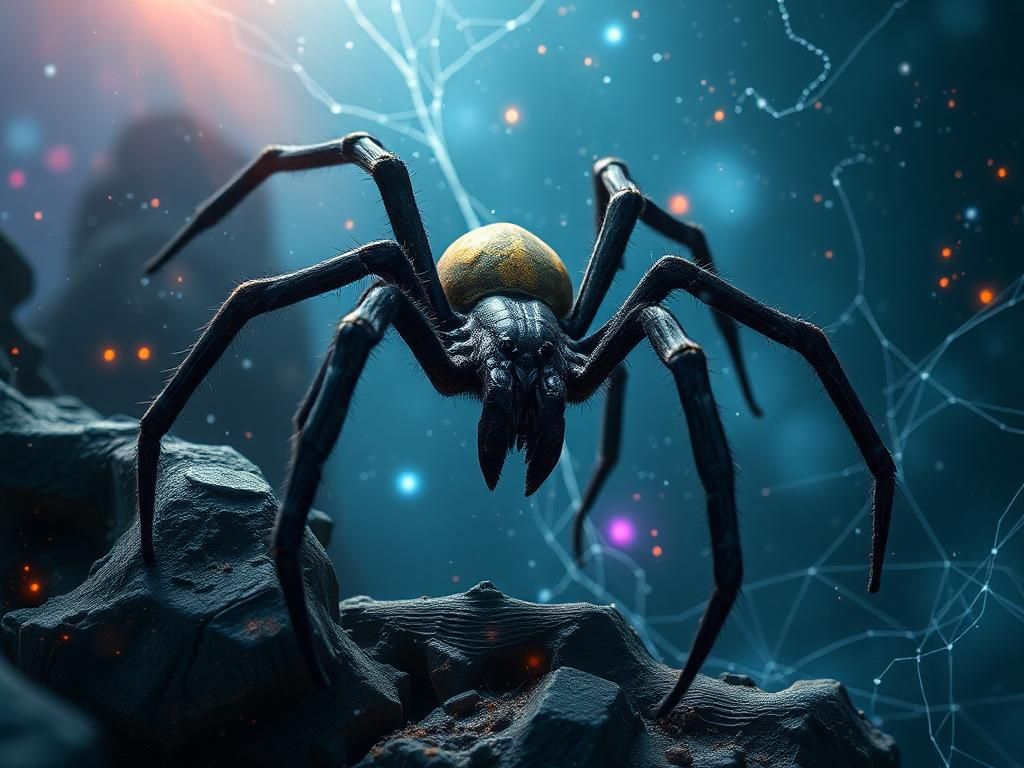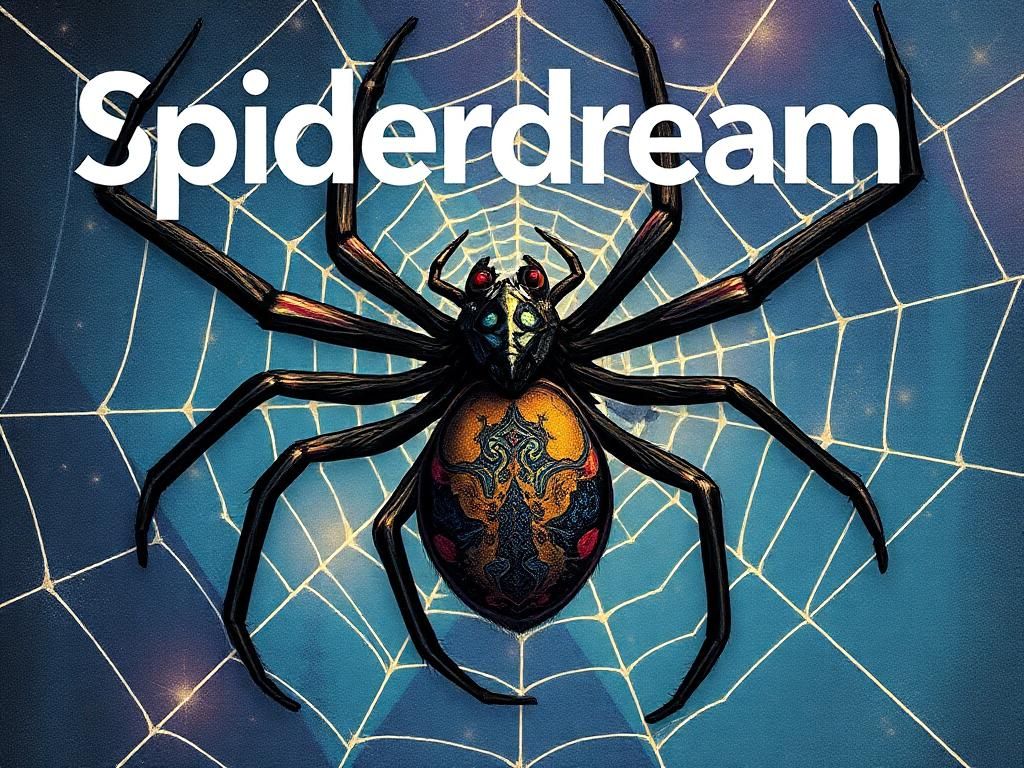In the realm of dreams, the curious phenomenon of spiderdream captivates our imagination and offers a glimpse into the subconscious mind. A spiderdream can evoke a myriad of emotions—from the thrill of creativity to the chill of fear. This article delves into the meaning and interpretations of spiderdreams, exploring their psychological and cultural implications, while also highlighting ways to engage with these fascinating reflections of our inner worlds.
Introduction to Spiderdream
Definition of Spiderdream
Spiderdreams can be described as the visions or narratives that feature spiders prominently during the dreaming state. They are complex constructs that weave together our thoughts, anxieties, and inspirations, often leaving us with lingering emotions upon waking. These dreams may serve as a mirror, reflecting our inner psyche and the multifaceted nature of fear and creativity. The cultural origins of spiderdreams are rich, with references found across various traditions, each attributing different meanings, thereby influencing interpretations throughout history.
Purpose of the Article
This article aims to explore the significance of spiderdreams, shedding light on how they are interpreted across different cultures and psychological frameworks. We will examine the overwhelming allure of spiders within our dreams and consider what they might symbolize about our waking lives, especially in connection with our emotions and experiences.
The Symbolism of Spiders in Dreams
General Symbolism
In dreams, spiders are often regarded as potent symbols of creativity and patience. Their ability to construct intricate webs signifies the complex nature of our own thoughts and emotions. Conversely, they can also induce feelings of fear and trepidation, showcasing the dual nature of these creatures as both inspiring and frightening. This duality invites us to examine our own perceptions of spiders within the context of our spiderdreams and what they represent.
Psychological Interpretations
From a psychological standpoint, spiders often embody archetypes found within Jungian psychology. They can symbolize the shadow self—the part of our psyche that houses our fears and anxieties. For many, encountering spiders in dreams may represent the manifestation of deep-seated fears, reflecting personal issues that require acknowledgment and resolution. The imagery of spiders may serve as a compelling representation of our inner struggles, offering insight into our emotional states.
Common Themes in Spiderdreams
Dream Scenarios Involving Spiders
Common spiderdreams include scenarios such as being chased or attacked by a spider, which can evoke feelings of helplessness or panic. Alternatively, dreams of watching a spider spin a web may inspire feelings of awe and creativity, indicating the dreamer’s capacity to craft their own reality. Additionally, encountering a spider in unexpected places can symbolize unforeseen challenges or the presence of anxiety in an otherwise calm environment.
Emotional Responses to Spiderdreams
Experiencing spiderdreams can lead to a wide array of emotional responses. Fear and anxiety often accompany dreams where spiders are menacing or threatening. On the other hand, when spiders are perceived as lovely or fascinating, they may evoke feelings of wonder and intrigue. This emotional spectrum can provide valuable insight into how we process our fears and inspirations in waking life.
Cultural Interpretations of Spiderdreams
Indigenous and Folkloric Perspectives
Throughout history, different cultures have held unique perspectives on spiders in dreams. In Native American mythology, the spider is often seen as a creator, symbolizing the interconnectedness of life. Similarly, in African folklore, spiders convey wisdom and knowledge, often featured as clever characters who navigate complex situations. These cultural interpretations enrich our understanding of spiderdreams, infusing them with layers of meaning that transcend individual experience.

Contemporary Cultural References
In modern society, spiders in films and literature represent a range of narratives, often oscillating between horror and fascination. Movies like “Charlotte’s Web” depict spiders in a positive light, emphasizing their nurturing qualities, while horror films typically exploit the fear associated with these arachnids. This dual portrayal reiterates the complexity of spiderdreams and invites us to reflect on our perceptions of how these creatures influence our waking thoughts and emotions. Additionally, contemporary art also utilizes spider imagery, serving as a canvas for expressing intricate emotions.
Psychological Analysis of Spiderdreams
The Role of Unconscious Mind
Spiderdreams often serve as a window into the unconscious mind, revealing subconscious thoughts and experiences that shape our behaviors and emotions. Analyzing these dreams may uncover recurring themes and symbols that offer clarity regarding unresolved issues in our lives. Case studies show that individuals with arachnophobia frequently have spider dreams, which may signify the need to confront their fears.
Coping with Fear and Anxiety
For many, spiderdreams can trigger feelings of fear and anxiety related to spiders. To cope, various therapeutic approaches are employed—including exposure therapy, which gradually desensitizes individuals to their fears. Additionally, utilizing spiderdreams in dream therapy practices can facilitate discussions surrounding personal fears and the creative potential that lies within these dreams, prompting meaningful change.
Methods for Dream Analysis
Journaling and Dream Mapping
One of the most effective methods for analyzing spiderdreams is through journaling and dream mapping. Recording dreams immediately upon waking helps capture fleeting details before they fade. Techniques such as identifying symbols, emotions, and recurring elements over time can reveal significant patterns and insights into one’s subconscious. By paying attention to the details of spiderdreams, individuals can start to forge deeper connections with their emotional landscapes.
Seeking Professional Guidance
Engaging with a therapist specializing in dream analysis can provide valuable insights into the significance of spiderdreams. Professional guidance allows individuals to explore their dreams in a safe and structured environment, helping integrate these experiences into broader mental health discussions. Finding a qualified therapist can empower individuals to navigate their feelings and foster personal growth.
Conclusion
Recap of Key Insights
Throughout this exploration of spiderdreams, we uncovered the cultural and psychological implications of these fascinating nocturnal narratives. Spiders symbolize both creativity and fear, reflecting our inner struggles and aspirations. Understanding the various dimensions of spiderdreams can provide meaningful insights into our emotional states and help us recognize the power embedded within our dreams.
Final Thoughts
Embracing the creative potential of spiderdreams equips us to understand our personal symbolism better. We are encouraged to explore our dreams and the lessons they impart, fostering deeper connections with ourselves and our surroundings. Each dream holds significance, and the journey of understanding it can be transformative.
Call to Action

Engage with Your Dreams
As we delve into the world of spiderdreams, we invite readers to maintain a dream diary. Recording each dream—especially those featuring spiders—will allow you to track patterns and themes over time. Moreover, sharing personal spiderdream experiences in comments or forums can foster a sense of community and promote further exploration of this captivating topic.
Additional Resources
For further reading, consider these recommended books and articles on dream interpretation:
FAQ Section
What does it mean to dream about spiders?
Dreaming about spiders can symbolize various aspects, including creativity, patience, and unresolved fears. Context matters, as well as your emotional response to the spider.
Are spiderdreams common?
Many people experience spiderdreams at some point in their lives, particularly those who have a fear of spiders or are dealing with anxiety.
How can I interpret my spiderdream?
Start by keeping a dream journal, noting details like emotions, scenarios, and recurring elements. Analyzing these entries over time can reveal significant patterns.
Can spiderdreams indicate anxiety?
Yes, encountering spiders in dreams can often reflect underlying anxiety or emotions that may need addressing.
What are coping strategies for arachnophobia tied to dreams?
Therapeutic approaches, including exposure therapy and dream therapy, can help individuals cope with fears associated with spiders.
Why are spiders considered symbols of creativity?
Their ability to weave intricate webs reflects the art of creation and the patience required to bring ideas to fruition.
Can spiderdreams signify positive changes?
Yes, while they often evoke fear, they can also herald new beginnings or creative journeys depending on your emotional response.
How can I find a therapist for dream analysis?
Research therapists in your area who specialize in dream analysis or seek referrals from mental health professionals.
Are there cultural variations in the interpretation of spiderdreams?
Yes, various cultures have different beliefs and interpretations surrounding spiders, which can influence how spiderdreams are perceived.
Can keeping a dream diary really help?
Absolutely! Recording dreams allows for pattern recognition and deeper reflection, fostering personal insight over time.
Each spiderdream offers unique insights into our psyche, inviting us to explore their rich tapestry of meaning and significance. Engage with your dreams and unveil the myriad truths they hold.
| Dream Scenario | Emotional Response | Symbolic Meaning |
|---|---|---|
| Chased by a spider | Fear and panic | Unresolved fears |
| Watching a spider spin a web | Awe and intrigue | Creative potential |
| Finding a spider in unexpected places | Surprise or anxiety | Unforeseen challenges |
